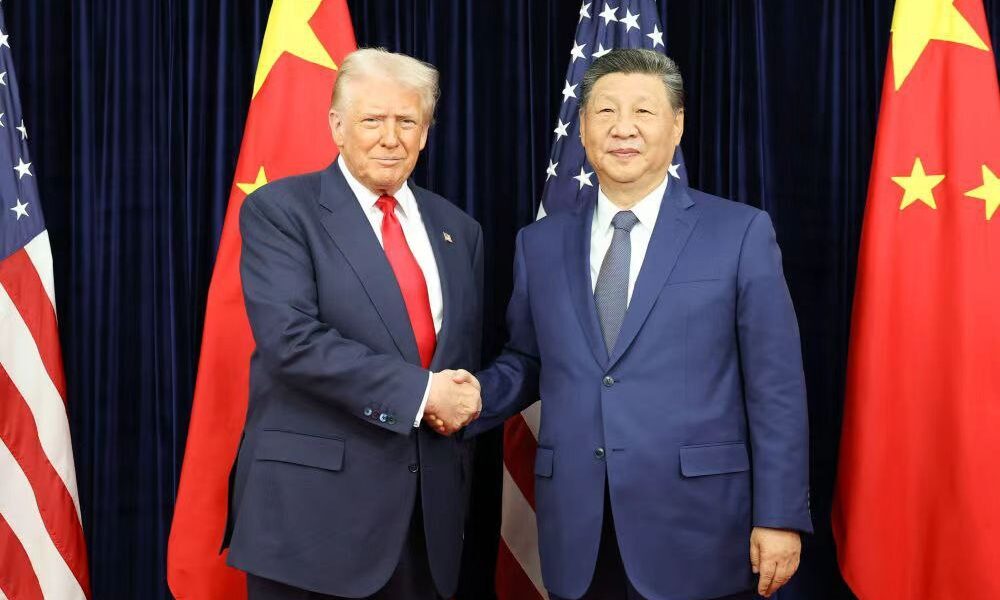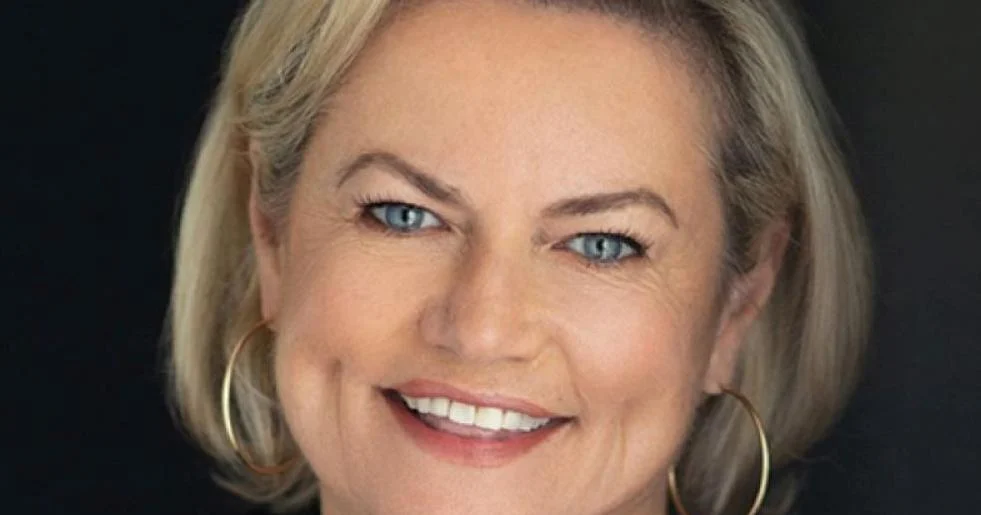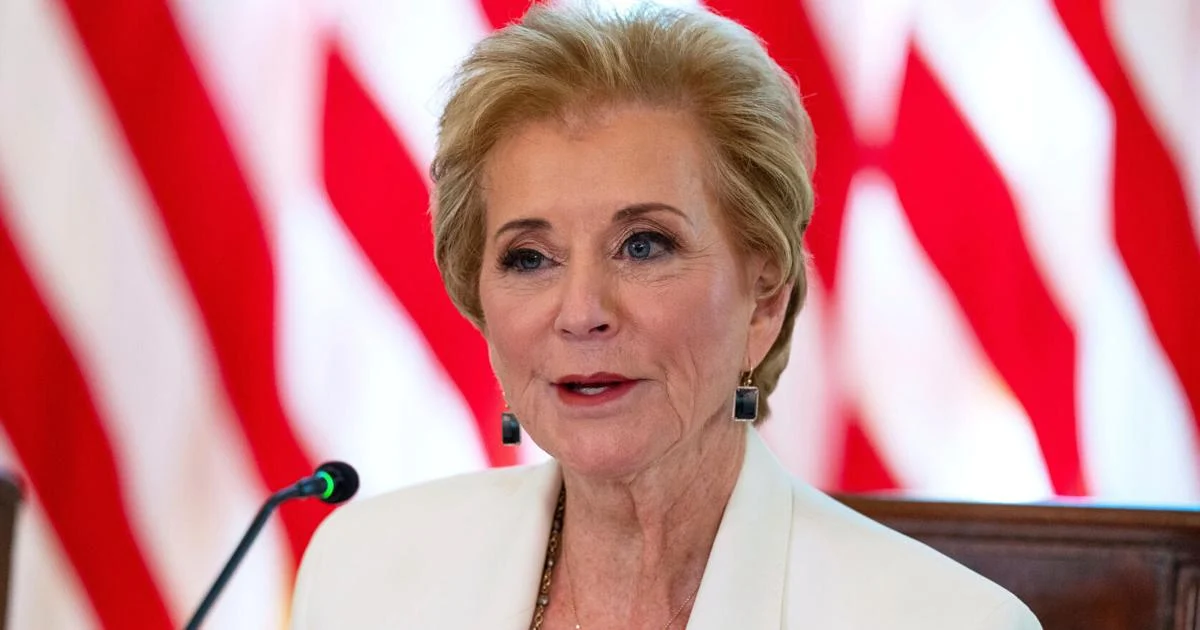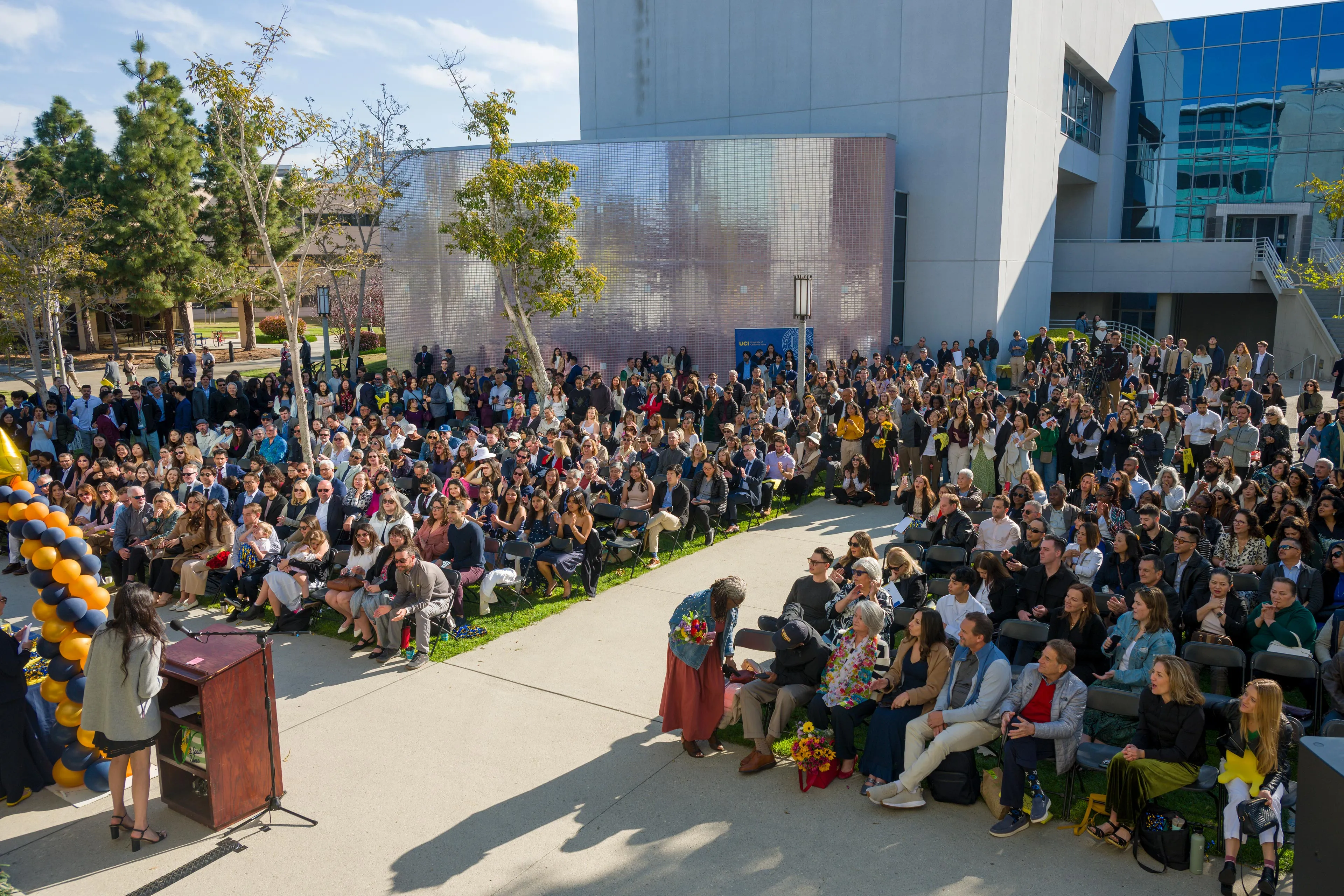Copyright Chicago Tribune
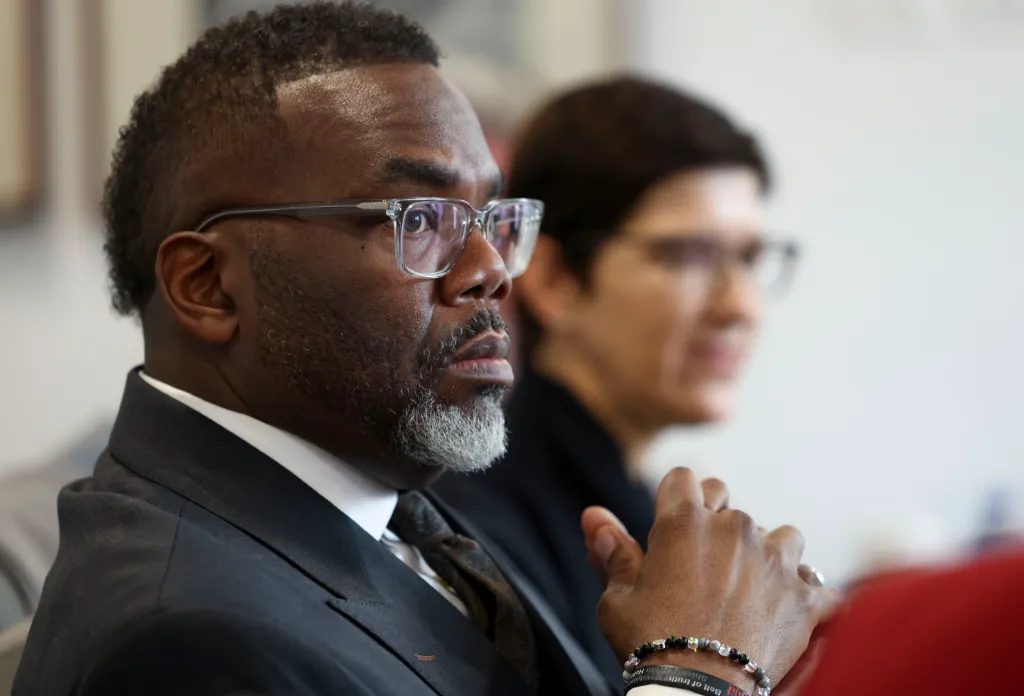
The opening salvo in Mayor Brandon Johnson’s third budget cycle was directed clearly and unequivocally at President Donald Trump, but it also carried a pointed message to aldermen. Employing dark imagery of federal troops waiting to touch down in Chicago and immigration agents snatching mothers outside schools, the freshman chief executive’s 2026 budget address repeatedly cast his $16.6 billion spending plan as the city’s best response to President Donald Trump. “This is not rhetoric. This is a reality,” the mayor told aldermen. “The ‘Protecting Chicago’ budget protects Chicagoans from Trump’s cuts and his attacks on our city. It protects the services and programs that Chicagoans rely upon.” However, Johnson’s rhetoric around his first Trump-era budget does not, in fact, match the reality of what’s driving the city’s fiscal woes. Instead, the $1.19 billion projected shortfall for 2026 has been telegraphed for years because of rising personnel and pension costs as well as pandemic-era federal grants from President Joe Biden’s administration expiring. While these pressures long predated Johnson, he has known about them since assuming office and has not meaningfully addressed the structural causes. Thomas Bowen, a Democratic political strategist, said it may be good political instinct to use Trump as cover during what’s expected to be Johnson’s most difficult budget fight yet. But in Chicago, voters pay very close attention to their mayor too, he said. “There’s always some foil you can use in politics to focus voter anger away. That only is going to work if you haven’t already cratered your relationship with the voters, and that’s his problem,” said Bowen, who worked for Johnson’s predecessors Lori Lightfoot and Rahm Emanuel. “You can dig out of a little bit of the hole, but at some point you’re still proposing difficult things for the voters to swallow.” Trump, by the numbers The mayor’s spokesperson, Cassio Mendoza, said his team never blamed the city’s deficit on Trump. “We have said over and over again that the Trump cuts to SNAP, Medicaid, housing, and public transportation are the reason why we need to protect the programs that Chicagoans rely upon,” Mendoza wrote in a statement. “They are not the reason for the deficit.” But Johnson’s team has used language tying the president to Chicago’s budget gap. One flyer the mayor’s office posted on X was captioned, “Closing the Trump Deficit through Progressive Revenue.” Ald. Samantha Nugent, 39th, a council moderate, said Chicago voters are “really smart” and will be skeptical of attempts to conflate the president’s moves with Johnson’s proposed taxes. “The mayor’s budget address used the phrase ‘Trump cuts’ repeatedly, so clearly they’re trying to create a nexus,” Nugent said. “Having questions or concerns about this budget does not make you a Trump supporter. It makes you a good financial steward for the city.” The mayor’s budget director, Annette Guzman, has not followed up on requests from aldermen and the Tribune for a full accounting of federal funds jeopardized next year, while a fiscal watchdog group alleged that, after it pressed the issue, Johnson deputies could only identify one such grant in the city budget. “Based on Civic Federation briefings and discussions with City of Chicago officials, we understand that the only substantial federal grant funding currently frozen is approximately $36 million from the Urban Area Security Initiative, which supports counterterrorism and public safety activities within the City,” Executive Director Joe Ferguson said in a statement. “While litigation continues regarding several other grants, federal efforts to restrict or withhold additional funding to the City have thus far not succeeded.” The mayor’s budgeted grant proposal for 2026 shows UASI allocations falling from a total of $127 million to about $73 million, a loss of roughly $54 million. But asked to provide a more detailed accounting of all federal grants being affected next year, Mendoza instead listed nationwide cuts that largely fell outside the city government’s purse strings. He rejected gripes from aldermen — several of whom inquired on direct federal cuts to city’s coffers — feeling left in the dark. “We have provided (aldermen) with details on Medicaid, SNAP, Public Transit, Housing, and Public Education cuts by the Trump administration, which are all the cuts that the Mayor discussed during his budget address,” Mendoza said. He added that the administration is embroiled in “ongoing litigation” to preserve about $30 million to $60 million in Medicaid reimbursements, $1 million to $2 million in Centers for Disease Control and Prevention funding and $125 million in public health grants. Mendoza also cited cuts to anti-violence programs under Trump, but the city’s funding stream that Johnson plans to supplant with a new head tax is expiring only because of the end of COVID-era stimulus funds. The Trump administration’s changes concern direct grants to Chicago nonprofits. “He’s just mincing numbers like crazy,” Ald. Scott Waguespack, 32nd, a Johnson opponent, remarked. He said he did not recall aldermen being sent an exhaustive list of actual federal cuts to the city budget. Mendoza added that Chicago Public Schools, which operates a separate budget, stands to lose a hefty chunk of federal funding as well, a threat that Johnson and Chicago Teachers Union officials have argued is why the city must declare a record tax increment financing surplus, over $500 million of which would go to the schools. However, even that argument is ringing hollow for some aldermen who are balking at the TIF money their ward projects rely on being sacrificed. Ald. Maria Hadden, 49th, co-chair of the Progressive Caucus, said she’s hopeful the $21-per-employee corporate head tax in Johnson’s proposal is the right path to creating a new, sorely needed revenue stream for public safety. But she “can’t speak to the mayor’s talking points” on the president. “I know the mayor’s been out there really pushing this all on Trump, and I understand the political reasons why, but there is a long-term thing that we have to change,” Hadden said. “We have structural changes we need to make. We’re not going to be able to cut our way out of this budget deficit.” The populist language from Johnson and the grassroots activists backing his head tax seeks to tap into the class resentment that they believe Trump’s “One Big Beautiful Bill,” signed in July, is fomenting. That perhaps emboldened Johnson to start off negotiations on what many expected to be a maintenance, wartime-type budget with a loftier progressive wish list instead. But does the anti-Trump sentiment on the ground translate into a broad appetite for the mayor’s proposed surcharges on ride-shares or Netflix, or a corporate head tax revival that even some progressives fear could amount to a penalty for jobs? “The question in my mind as we think about City Council is: Are these alders willing to tell companies to pitch in just a little bit the cost of a lunch for their employee every month, or would they rather see their neighbors die?” said Ishan Daya, co-director of the Johnson-allied Institute for the Public Good. “And that is not an exaggeration.” Overall, the federal government makes up about 77% of the city’s total grant awards, either through direct or pass-through funds via the state. Federal grant totals are actually projected to rise by 7%, or $156 million, next year, Johnson’s budget overview says. Where major funding pools will disappear are in public safety, due to the expiration of a one-time Democratic National Committee award, as well as the loss of $502.4 million in COVID-19 stimulus funds. Guzman argued to the Tribune Editorial Board last week that a potential, abrupt stop to federal benefits from the Supplemental Nutrition Assistance Program amid the government shutdown would hit large swaths of Chicagoans, who would look to City Hall for that service. But the city does not run its own food stamp program, and the new taxes Johnson is proposing don’t change that. Confronted with that reality, Johnson told the Tribune, “Right now, we do have — whether it’s working with the (Greater) Chicago Food Depository and other community based organizations … ways in which we can partner to help support and lift up that work. Should we do more? I believe the state, the city and the county should do more in the midst of these Trump cuts.” The mayor also said the Chicago Department of Public Health’s federal support is shrinking from $1 billion to $200 million because of “lost grants.” He appears to be citing the agency’s 2021 budget, when it reached that total thanks to a massive infusion of pandemic relief dollars. Since then, reliance on federal funding has tapered down as CDPH has spent its pandemic relief money — not because of a new or sweeping Trump cut. CDPH’s proposed 2026 budget is about $315 million, including just over $200 million in federal grants. That’s still more than the department counted on in outside grants before the pandemic. Foiling the foil Hours after the mayor’s budget address ended, aldermen across the city started being put on notice. A group calling itself Chicagoans Against Trump Cuts texted fliers to residents with a headshot of their local City Council representative and a call to action: “Tell your Alderman … to support Mayor Johnson’s proposed budget to protect against Trump cuts.” Last Friday, another round of text fliers from the shadowy group landed in residents’ inboxes. Johnson’s political team denied being behind the text campaign, and no such organization with that name is registered with the state’s election board or the Illinois secretary of state’s office. “At a moment when Latinos are being attacked, Mayor Johnson via a political connection is trying to pin us down to vote for his budget or be smeared as supporting Trump — this is insulting and tone deaf,” frequent mayoral critic Ald. Gil Villegas, 36th, posted on X after the first round of texts. “This is not a route to getting council members to a yes.” Whatever the Johnson-friendly source may be, blaming Trump has also been a tactic the mayor has leaned on before. Following the defeat of Bring Chicago Home, an early blow to his tax-the-rich agenda, Johnson claimed the communities most against the tax referendum were “the same people who want to see Donald Trump … be president again.” Villegas scoffed at the notion of his colleagues being swayed by an unpopular mayor “putting a nice little hashtag, ‘Protect Chicago,'” on what amounted to a “campaign budget.” Polling has shown Johnson struggling with low approval numbers among Chicago voters throughout his term. “They determined that they’re running against Trump in order to pass a budget that is not being directly impacted by the federal government,” Villegas said. The mayor, for his part, insisted, “I’ve never associated Democrats with Trump. You have to ask (Villegas) that. … I mean, I don’t know why anyone would even draw that conclusion, right?” He then claimed that Villegas himself proposed a $31 to $33 head tax during the alderman’s first term, but his office could not provide evidence of that. Both of them accused the other of playing politics ahead of the 2027 election. “Ultimately, the buck has to stop with Johnson,” Terrie Pickerill, a Democratic political consultant, said. “Johnson setting Trump up as a boogeyman, he is a good boogeyman, right? But ultimately, Trump won’t be on the ballot in ‘27, and Johnson’s opponents are going to hold him accountable for this budget.” Johnson’s allies — particularly freshman progressives — will also likely face attacks should they support his third budget. One Future Illinois, a fundraising and advocacy group launched by business and civic leaders, is planning to launch a counteroffensive if the “Johnson vs Trump” messaging on the budget continues, President Michael Ruemmler said. “The aldermen that I’ve talked to, I think, are tired of that shtick and are strong Democrats,” said Ruemmler, who managed Emanuel’s 2015 campaign. “They can try that if they want, but we’ll help set the record straight and expose them for what they’re doing.” Elsewhere this month, perhaps Emanuel’s biggest political foe in the city was invoking his name in a surprising way, by paraphrasing his famous quote, “You never want a serious crisis to go to waste.” CTU President Stacy Davis Gates, a close Johnson ally, said the city must do everything it can to “recoup” the tax breaks that billionaires would get under Trump. And Chicago’s scorching backlash against the president’s actions presents the perfect opening to do so, she said. “While I’m not a fan, (Emanuel) does say a thing that is important in this moment,” Davis Gates said in remarks to an audience of teachers. “Right now Chicago is in a very chaotic space. What we understand about chaos being an opportunity is that when you take the opportunity, we’re not going to take the opportunity to return to status quo.” The Tribune’s A.D. Quig contributed.
